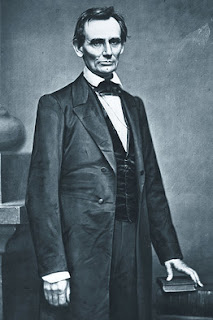
"A. Lincoln" (Random House, 796 pages, $35), by Ronald C. White Jr., is the first comprehensive, single-volume biography of Lincoln since David Herbert Donald's in 1996.
Lincoln's relation to the written word is the subject of Fred Kaplan's "Lincoln: The Biography of a Writer" (Harper, 406 pages, $27.95). Not unlike Allen C. Guelzo, who argued in "Redeemer President" (1999) that Lincoln deserves to be considered a first-rate political thinker, Mr. Kaplan argues that Lincoln deserves to be considered a first-rate American writer.
Lincoln actually knew more than he let on, as Craig L. Symonds, a retired Annapolis professor, notes in his splendid "Lincoln and His Admirals" (Oxford, 430 pages, $27.95). The only president to hold a patent (on a device designed to lift riverboats over shoals), Lincoln was fascinated by maritime technology and frequently visited the Washington Navy Yard to see the latest weapons and engines.
Working at close quarters with Lincoln in the White House was an education in itself, as Daniel Mark Epstein observes in "Lincoln's Men" (Collins, 262 pages, $26.99), his study of Lincoln's secretaries: John Hay, John Nicolay and William Stoddard.


No comments:
Post a Comment